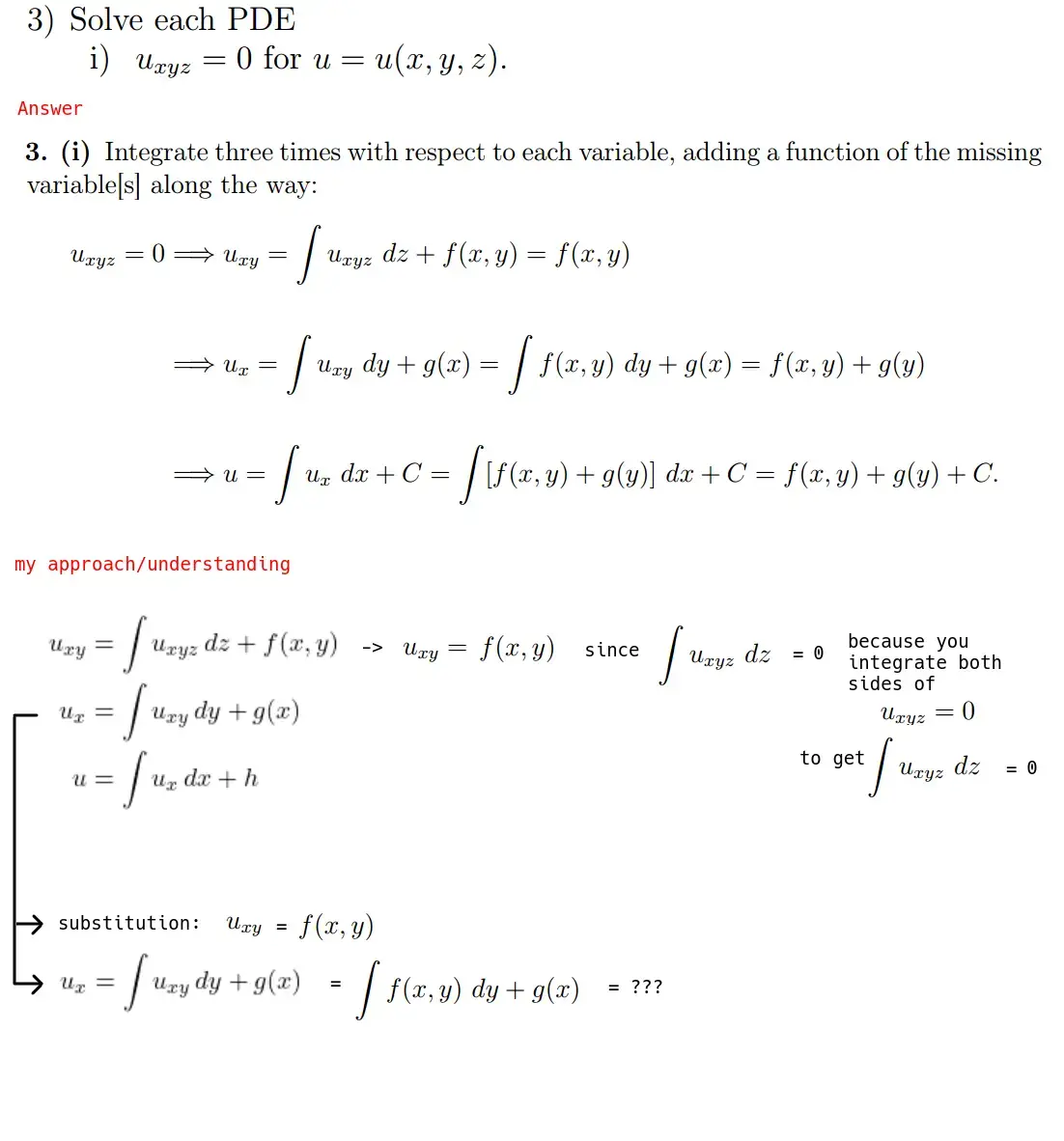this post was submitted on 21 Sep 2024
15 points (100.0% liked)
A place for everything about math
924 readers
11 users here now
founded 5 years ago
MODERATORS
you are viewing a single comment's thread
view the rest of the comments
view the rest of the comments

Thx. Any idea where I can learn the right way that is clearer than this sloppy business? I basically threw in the towel of all courses since this hiccup
Sorry, I'm not much help with that kind of advice. My knowledge about it mostly comes from dim memories of my time at university many years ago - with only some very minor bits being kept fresh by regular use.
My only suggestion is that it would be good to use a reputable textbook, so that you can be fairly confident that it is correct and not cutting corners; and then when you practice yourself, you should also make a conscious effort to not cut corners. (It's always tempting to just fudge any changes to arbitrary constants as being unimportant - since they are still arbitrary constants anyway; and mostly it doesn't matter. But that's a bad habit, because sometimes it does matter, and won't notice those times unless you've been paying attention all the time.) I won't try to recommend specific sources though, because I'm very out-of-date with that. I'll just say that published books used by universities are likely to be better than the notes of a private tutor or small online course.
I am enrolled in university which may be the sad part. Anyway, thanks for thr advice, I'm going to look further